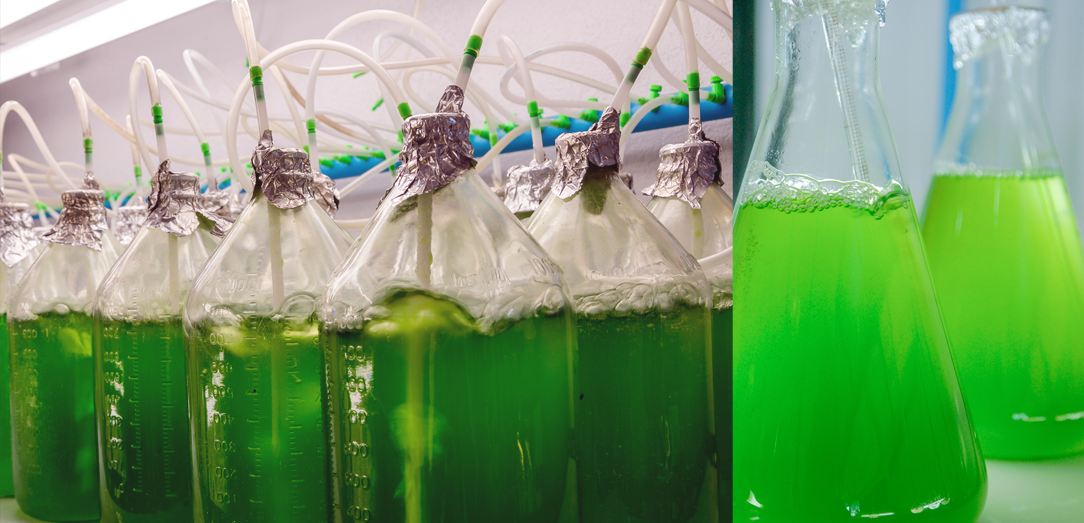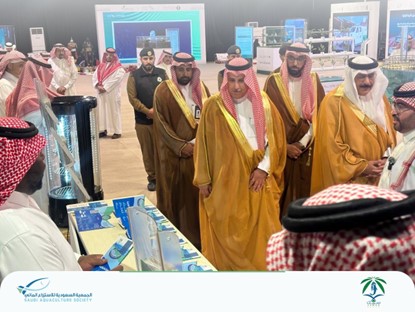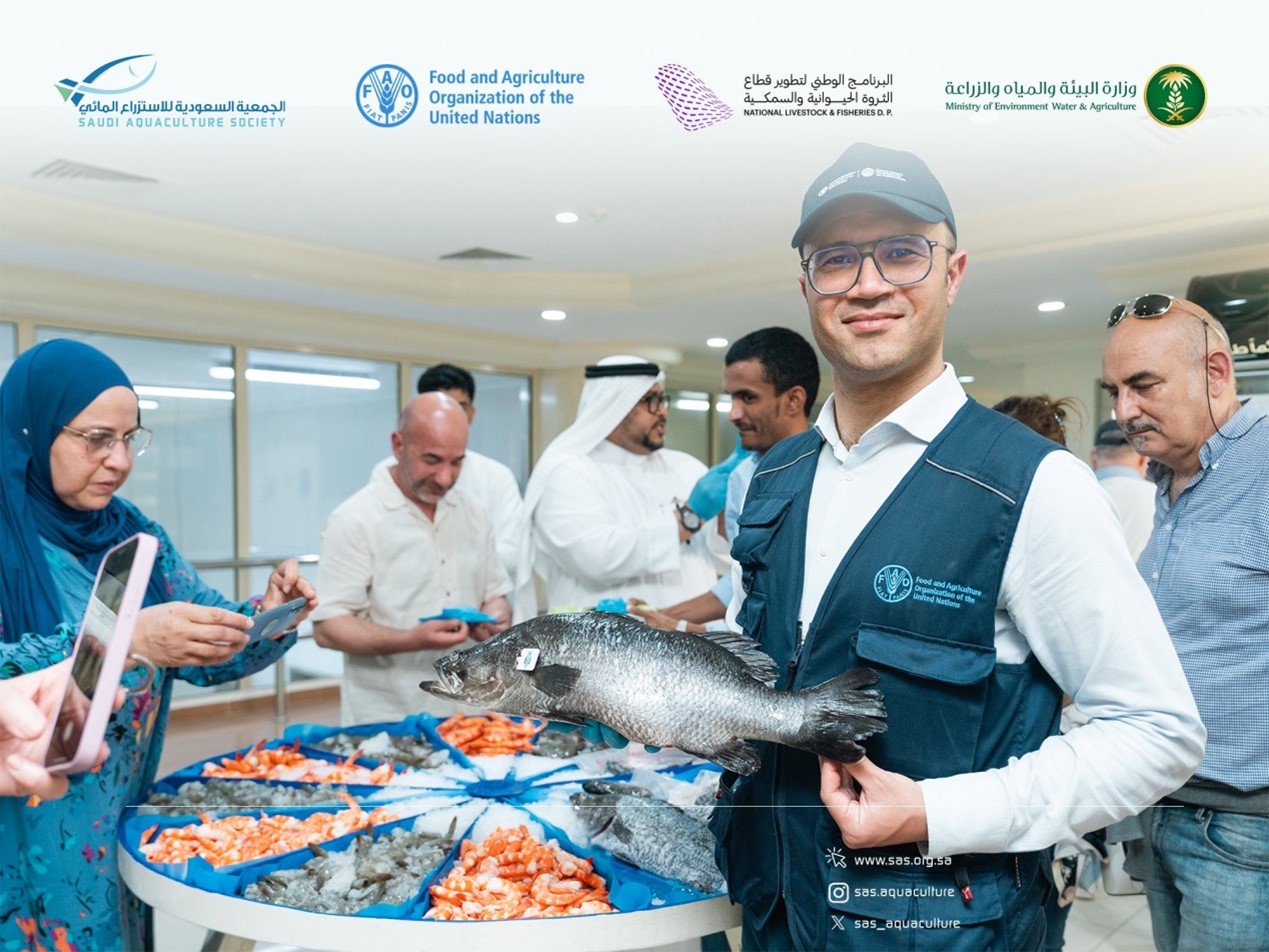
H.E. Minister of Environment, Water and Agriculture Eng. Abdulrahman bin Abdulmohsen Al-Fadhli launched the research and development project for algae production technologies in KSA today in Riyadh, and signed a cooperation agreement to implement and support the project with a number of government institutions, associations and the private sector.
H.E. Deputy Minister of Environment, Water and Agriculture for Agriculture Eng. Ahmed Al-Ayadah said that the project is of great importance through the Kingdom's use of modern technologies for producing algae using marine water to contribute to food security, economic development and environmental sustainability of the Kingdom as part of the strategic objectives of the national 2030 vision. The industries that will benefit from this research are include biofuels, plastics, feed, cosmetics and pharmaceutical industries.
According to H.E. Eng. Ahmed Al-Ayadah, the project has benefited in prioritizing from previous studies and research, starting from where the others ended up.
This way, through the combined efforts of the public and private sectors, KSA will become a leader in algae production techniques, at an industrial scale for production and use.
H.E. Eng. Ahmed Al-Ayadah revealed that the project, which extends over a period of 3 years starting in 2018, due to its high scientific value, will contribute to the transfer of technology at local level, and will provide local graduate students with the appropriate research environment to work on their academic research.
On the importance of algae farming in KSA, H.E. Eng. Al-Ayadah explained that it is a base for renewable resources, as it can be a dynamic economic programme contributing to the achievement the sustainability of the kingdom's feed industry through the use of seawater and the reduction of the cost of aquaculture feeds that account for about 50% of the total production costs. In addition the research is expected to improve the quality of feeds used in all agricultural sectors, including aquaculture, and to open new economic ventures for the industry, through the creation advanced products that can be used as medical materials, nutritional supplements and other high value-added materials.
The development of this sector will not only provide new employment opportunities but will also help to reduce the adverse environmental impacts of CO2 emissions through the consumption of large quantities of this gas which is required for the algae culture process.
H.E. Eng. Al-Ayadah added that the Kingdom has comparative advantages in supporting the commercial production of algae, the most important of which being the availability of multiple energy sources with low cost from the emissions of electricity, desalination, refinery, cement-producing etc. plants, along with the favourable climatic conditions which allow for the appropriate algae strains to be cultivated. Moreover, the availability of suitable marine waters in the Red Sea, as well as the availability of land, otherwise unfit for cultivation, on these shores and the opportunity for the establishment of algae aquaculture projects, along with the existence of local scientific capacity and laboratory infrastructure at King Abdullah University of Science and Technology and other Universities and Research centres, provide solid grounds for the successful completion of this project.
The Chairman of the Board of Directors of the Saudi Aquaculture Society, Eng. Ahmad al-Balaa, said one of the main objectives of the algae project is to produce a bioalgae mass for the purpose of replacing fish meal, which is considered to be of high nutritional value for the farmed fish, pointing out that the kingdom has the natural potential for the production of algae on a very large scale. This method is one of the few that will allow the production of protein to be secured to the world without draining water sources, especially since global statistics indicate that the world needs to increase food production by 70% in 2050.
Eng. Ziad bin Mohammed al-Shiha, CEO of Saudi Electricity Company, said he was pleased to contribute to the funding of research and development programs for the project, which will add value to the country’s economy by improving the industry of fuel and energy. The Executive Chairman of the National Industrial Company, Eng. Ibrahim bin Ibrahim Bahiri, stressed the Kingdom's urgent need to develop techniques for producing algae and incorporate this to the biodegradable organic plastics and to the production of national eco-friendly products that will further support and strengthen Vision 2030.
The Chief Executive of the National Program for Developing the Fisheries Sector Dr. Ali Al Shikhi explained that the research and development project for algae technology is one of the goals and outputs of the program, and that it is expected that its results will directly benefit the aquaculture industry and other industries as well.
It should be noted that the project's establishing members includes the Ministry of Environment Water and Agriculture, Saudi Aramco, SABIC, Saudi Electricity company, Al Watania for Industries Co, National Aquaculture Group, King Abdullah University for science and Technology, King Abdulaziz City for Science and technology, and Saudi Aquaculture Society.





.jpeg)